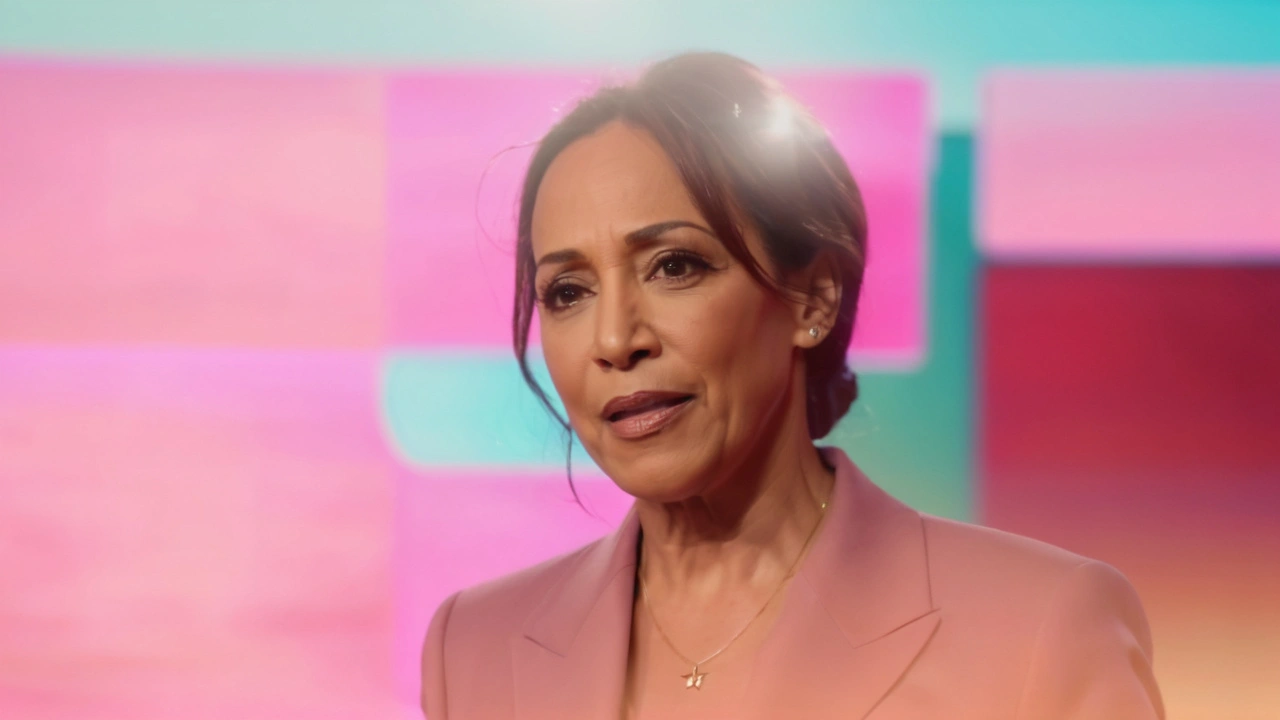Introduction
In an age where information is at our fingertips, it is astounding that stereotypes and misconceptions about Africa still persist. Recently, American actress and comedian Tiffany Haddish found herself at the center of a controversy after sharing a video of her visit to a grocery store in Zimbabwe. The reaction to her video underscores not just the ignorance that still exists but also the deep-seated stereotypes that many people unconsciously hold about the African continent.
The Controversial Video
Haddish's video, intended as a light-hearted exploration of everyday life in Zimbabwe, inadvertently sparked outrage. In the video, the actress marveled at the existence and quality of a local grocery store, appearing genuinely surprised. Her exclamations, which might have seemed innocuous to some, quickly became a lightning rod for criticism. Social media users were quick to point out that her astonishment perpetuated harmful stereotypes about Africa being a monolithic and underdeveloped region.
Public Reaction
The backlash was swift and vehement. One user sarcastically remarked that Haddish was the ‘first woman to discover a grocery store in Africa,’ highlighting the absurdity of the notion that everyday conveniences like grocery stores are rare in Africa. Other users chimed in, questioning whether Haddish believed that such amenities did not exist on the continent. The collective reaction painted a picture of frustration and fatigue from Africans and those familiar with the continent continually fighting against outdated and inaccurate portrayals.
Historical Stereotypes
The controversy around Haddish’s video is not an isolated incident but part of a larger, ongoing issue of how Africa is perceived globally. For years, mainstream media and educational systems have often portrayed Africa as a single, underdeveloped entity, a notion far from the complex and varied reality of the continent. This narrative has contributed to a lack of nuanced understanding, reinforcing stereotypes that paint Africa as backward or primitive.
African Diversity is something that needs to be more widely acknowledged. Africa is a continent of 54 countries, each with its own rich history, culture, and level of economic development. Some of the world's fastest-growing economies are in Africa, and many countries boast advanced infrastructure and thriving urban centers. From the bustling streets of Nairobi to the modern skyline of Johannesburg, Africa is far from what many outdated stereotypes suggest.
The Role of Celebrities
As public figures with large followings, celebrities like Tiffany Haddish have a platform that can either perpetuate stereotypes or help dismantle them. In this case, Haddish’s comments, albeit unintended, spotlight the responsibility that comes with such a platform. Celebrities traveling to different parts of the world should endeavor to educate themselves and their audiences, portraying a balanced and informed view of the places they visit. With their influence, they have the power to change perceptions and contribute to a more accurate and respectful understanding of different cultures.
The Importance of Education
Education plays a pivotal role in combating stereotypes. It's essential for educational systems worldwide to present a more accurate and comprehensive view of Africa. Textbooks and curricula should highlight Africa’s achievements, diverse cultures, and contributions to global progress. By fostering a more inclusive and accurate narrative, we can begin to dismantle the misconceptions that have persisted for far too long.
Media representations also have a significant impact on perception. Traditionally, Western media has had a tendency to focus on negative aspects when covering Africa, often highlighting issues such as poverty, political instability, and disease. While these issues are indeed challenges that some African countries face, they do not represent the whole picture. There are numerous stories of innovation, cultural richness, and economic growth that deserve equal attention.
Changing the Narrative
Changing public perception of Africa requires a collective effort. It involves educating individuals, rethinking how media covers the continent, and encouraging celebrities and influencers to use their platforms responsibly. Social media, despite its pitfalls, can be a tool for positive change. By sharing stories that challenge stereotypes and offer diverse perspectives, we can begin to shift the narrative.
Organizations and initiatives dedicated to promoting a more accurate portrayal of Africa can also play a significant role. By supporting African content creators, filmmakers, and journalists, we can ensure that the stories being told are authentic and diverse. This not only helps to correct misunderstandings but also gives a voice to those who have been historically underrepresented.

Conclusion
Tiffany Haddish’s grocery store video serves as a reminder of the stereotypes and misconceptions that persist about Africa. While the backlash she faced was indeed harsh, it also sparked an important conversation about the need for better awareness and understanding. By educating ourselves, supporting accurate media representations, and challenging outdated narratives, we can contribute to a more balanced and respectful view of Africa. It is a collective effort that starts with each of us, whether we are public figures, educators, or everyday individuals seeking to learn more about the world around us.
